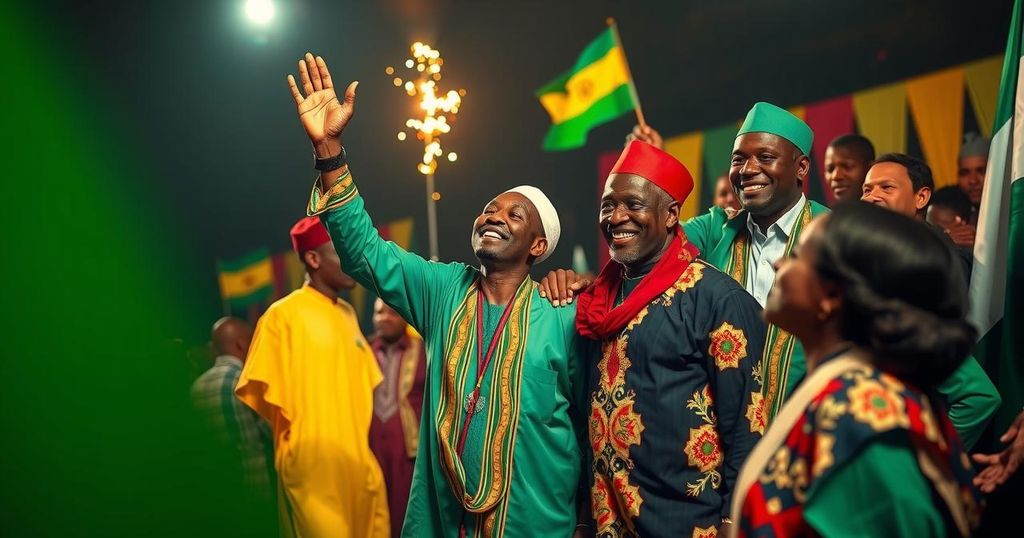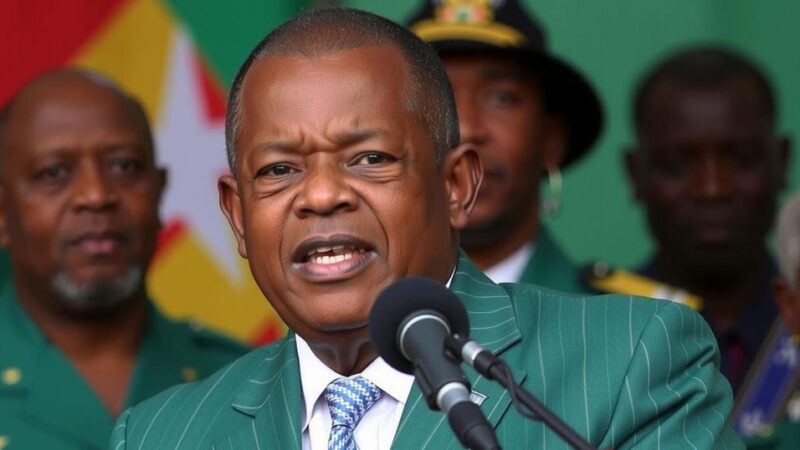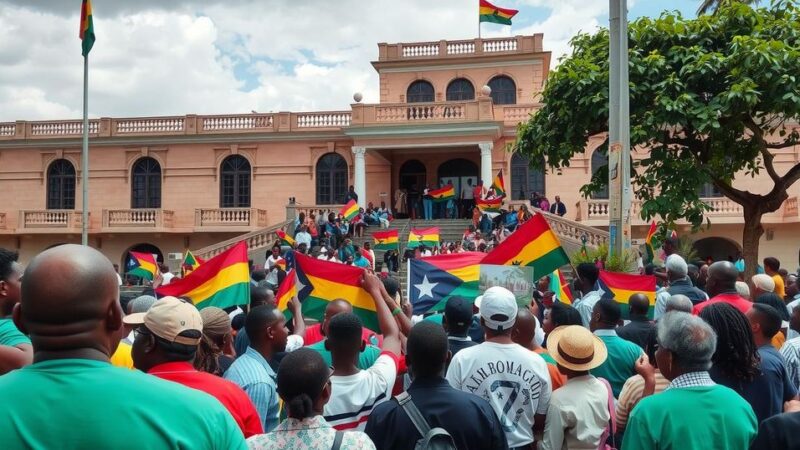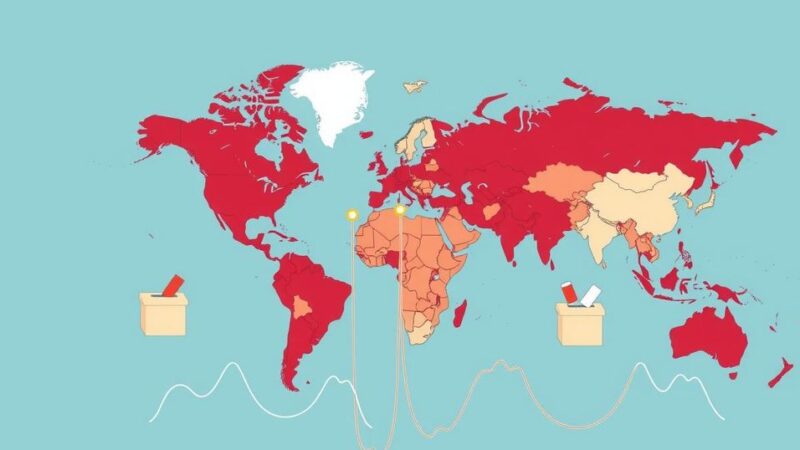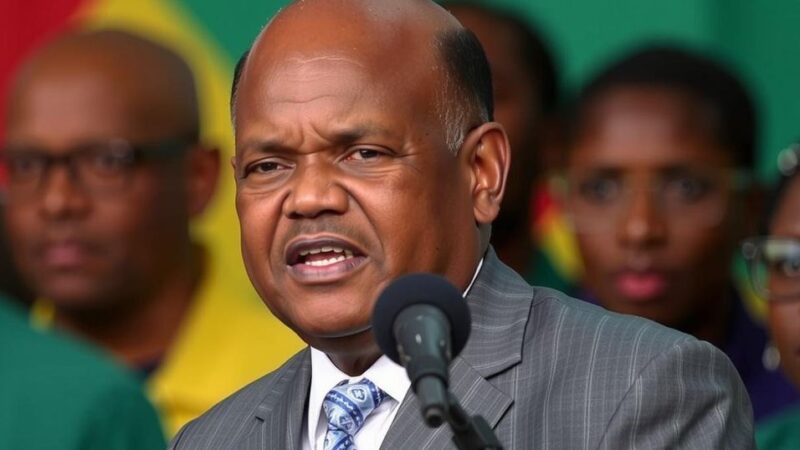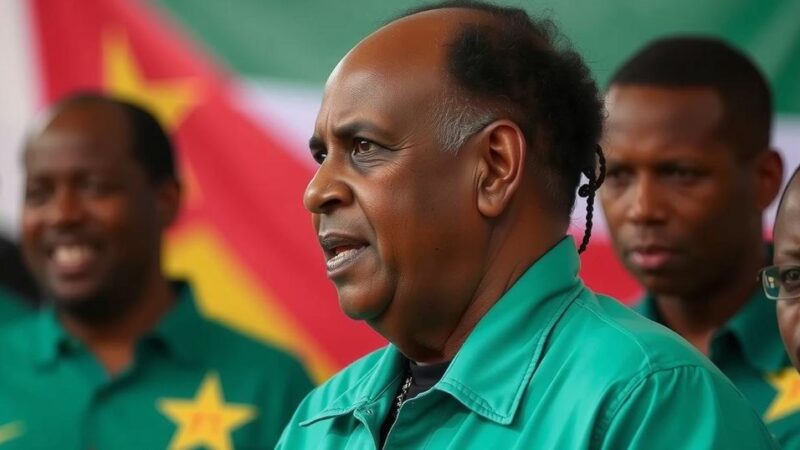Senegal’s government claims a large victory for the Pastef party in parliamentary elections, supporting President Faye’s reform agenda. Opposition leaders conceded amid peaceful voting, despite claims of electoral fraud. Official results are forthcoming, but challenges including unemployment and public finance remain significant.
The Senegalese government has declared a significant victory for the ruling Pastef party in the recent parliamentary elections held on Sunday. With the majority of votes counted, government officials assert that Pastef secured a strong mandate, enabling President Bassirou Diomaye Faye to advance his radical economic and social reform agenda, which was central to his election in March. Despite the absence of exact seat numbers reported by Pastef, a total of 83 seats is needed for a majority in the 165-seat National Assembly. Opposition leaders, including Former Prime Minister Amadou Ba and Dakar’s mayor Barthelemy Dias, conceded while votes continued to be tallied. The electoral process remained largely peaceful, though there were isolated incidents of clashes among party supporters before the election. “We are proud of the Senegalese people and we would like to thank them for the large victory that it has given to Pastef,” stated government spokesman Amadou Moustapha Ndieck Sarre to the BBC. President Faye, the youngest elected leader in Africa at 44, campaigned on promises focused on economic reform, social justice, and anti-corruption, which particularly resonated with younger voters. This new government is anticipated to confront significant challenges, including high unemployment rates and unstable public finances. Opposition claims have emerged, including Former President Macky Sall’s allegations of “massive electoral fraud” against Pastef, though the details remain unspecified. As official results are expected later today, the political ramifications of this election are poised to unfold in the coming days.
Senegal’s recent parliamentary elections hold substantial significance as they determine the legislative power structure and the ability of the ruling party to implement its agenda. The election outcome directly supports President Bassirou Diomaye Faye’s mandate, allowing for potential advancements in his proposed reforms, which are framed around economic and social revitalization. Furthermore, the tension between the ruling party and the opposition illustrates the existing political dynamics in Senegal, where past grievances and allegations of electoral fraud continue to shape discourse.
In summary, the Senegalese parliamentary elections have seemingly resulted in a large victory for the ruling Pastef party, empowering President Faye to push forward his reform initiatives. The atmosphere during the elections remained mostly peaceful, yet the political landscape is marked by ongoing claims of electoral fraud by opposition leaders. As the official results are awaited, the implications of this election will likely play a critical role in shaping Senegal’s political future.
Original Source: www.bbc.com

